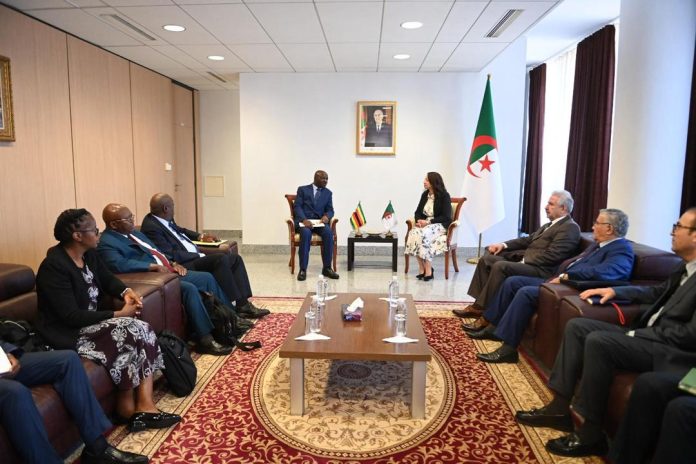In a significant move to enhance collaboration between African nations, Algeria and Zimbabwe have recently formed a joint business council. This initiative signals a new phase in South-South cooperation, aiming to transform strong political relationships into solid economic partnerships that will benefit both countries and the broader continent. This action highlights an emerging trend across Africa: the shift from merely diplomatic connections to practical economic integration, which is essential for sustainable development and resilience.
A Foundation of Shared Vision
The recent launch of the Algeria-Zimbabwe Joint Cooperation Commission, along with a new business council, builds on a strong history of solidarity between the two nations. Both countries possess an “honorable history of common struggle for liberation and the defense of national sovereignty,” as stated by Algeria’s Secretary of State for African Affairs, Bakhta Selma Mansouri. These solid political ties are now being strategically utilized to promote economic diplomacy.
The goal is clear: to establish an institutional framework for sustainable and mutually beneficial cooperation that goes beyond simple bilateral agreements. This approach reflects a genuine desire for balanced and inclusive collaboration within Africa.
This deepening engagement is particularly significant in the context of the African Continental Free Trade Area (AfCFTA). The AfCFTA serves as a transformative tool aimed at diversifying markets and increasing the flow of goods, services, and investments across the continent. By aligning their economic goals with the integration objectives of the AfCFTA, Algeria and Zimbabwe are setting a strong example for robust intra-African trade.
Key Sectors and Opportunities
The new business council aims to create significant opportunities in various sectors. The discussions have primarily focused on key areas like the agri-food industry and the pharmaceutical sector, where both countries have unique strengths and development needs. Algerian economic operators have been invited to visit Zimbabwe to explore concrete opportunities for building “real and fruitful partnerships.”
The discussions not only focus on these sectors but also emphasize the need to implement projects that provide mutual benefits for both countries and are relevant to the continent. Potential collaborations include energy, agricultural innovation, mining partnerships, and academic exchanges. This targeted approach to specific industries is essential for promoting economic diversification in both nations, helping to reduce Algeria’s dependence on traditional revenue sources like hydrocarbons.
By encouraging mutual investments, the council seeks to establish new value chains and stimulate growth that will create jobs and advance industrial development throughout the region. This represents a clear pathway for sustained collaboration across Africa.
As Algeria and Zimbabwe set a precedent for strategic intra-African partnerships, their joint efforts signal a promising future for regional economic integration and collective prosperity. This commitment to South-South cooperation is a powerful testament to Africa’s potential for self-reliance and collective growth.




